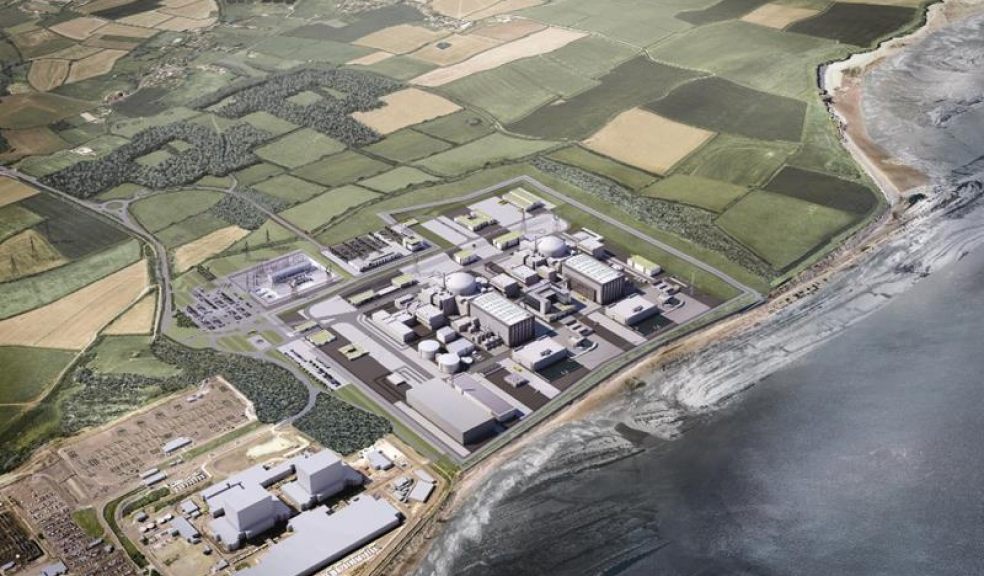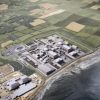
Green light for Hinckley Point C: Britain's first nuclear power station in a generation
The Government have reached an agreement with investors on proposals for a new nuclear power station in the South West.
The agreement with energy suppliers, EDF Group means construction could soon begin on Hinkley Point C, in Somerset.
It will be the first UK nuclear power station to be built since Sizewell B opened in 1995.
The Government has said that Hinkley Point C would be operational from 2023, providing energy to around 6 million homes or an area twice the size of London.
The construction is expected to cost around £16bn to be supplied exclusively by EDF Group and Chinese nuclear power companies; CGN and CNNC.
Energy and Climate Change Secretary Edward Davey said: “This is an excellent deal for Britain and British consumers. For the first time, a nuclear power station in this country will be built without money from the British taxpayer. It will increase energy security and resilience from a safe, reliable, home-grown source of electricity.
However this point has proved contentious amongst the Green Party.
Writing to TED Professor Molly Scott Cato said: "Davey's statement is misleading, perhaps intentionally so, since we will be guaranteeing EDF against potential costs increases and taking the full responsibility for the waste, the contribution being required from EDF being a token rather than the full cost of disposal."
"If we weren't standing behind the project it would not go ahead, which is why it did not go ahead until the government fixed the strike price high enough to tempt the Chinese."
Much of the agreement is centred on the nuclear strike price of £92.50 Mw/ph. This means that the owners of the energy are guaranteed £92.50 for each unit of energy even if the wholesale price is below this figure.
This also works the other way around so that if wholesale price rises, EDF will have to refund this money to remain at the nuclear strike price.
The UK Government has said that this money will not come from tax payer money but will come from bill payers at the point of charge. If instituted today the strike price would see a rise in energy bills in order to reach the strike price.
It is uncertain how the strike price will affect energy bills by 2023 which could potentially be lower than the wholesale price.
The wholesale price currently sits at around £45.
The station is expected to provide around 25,000 jobs across its entire construction process with a peak figure of 5,600 on site workers.
The station is also expected to create 900 permanent jobs in the 60 years it will remain operational.
Prime Minister David Cameron said: “As part of our plan to help Britain succeed, after months of negotiation, today we have a deal for the first nuclear power station in a generation to be built in Britain.
“This deal means £16bn of investment coming into the country and the creation of 25,000 jobs, which is brilliant news for the South West and for the country as a whole. As we compete in the tough global race, this underlines the confidence there is in Britain and makes clear that we are very much open for business.”
The Labour opposition has welcomed the agreement but has renewed criticism of the Government’s policy to the energy market.
Caroline Flint MP, Labour’s Shadow Energy and Climate Change Secretary, commenting on the announcement of, said: "Labour supports the development of new nuclear power stations in Britain as part of a balanced, secure and clean energy mix. We will scrutinise the details of this deal to ensure it delivers value for money for consumers.
"This agreement shows that long-term certainty is what really matters to unlock the investment we need to keep the lights on, not allowing overcharging to continue now. David Cameron is now in the ridiculous position of saying that they can set prices 35 years ahead for the companies producing nuclear power, while insisting they can’t freeze prices for 20 months for consumers while much-needed reforms are put in place."
The announcement comes on the same day that npower became the latest UK energy provider to raise their prices ahead of a potential energy bill freeze.
npower today announced that they were raising their prices by 10.4% on average, meaning a typical household would pay around £1, 459 per year in energy costs.
Paul Massara, CEO RWE npower, said: “We understand that although the Labour Party’s proposed price freeze may appear superficially attractive it will not lead to lower sustainable prices going forward because it doesn’t cut the growing costs of supplying energy. Only 16% of the bill is under our control and imposing price controls discourages investment, increases uncertainty and ultimately leads to higher prices.
“npower is committed to working with consumers, government and industry to deliver a modernised energy market which is affordable for customers and has a lower CO2 content. It is therefore essential that we have an open and honest conversation with customers about how they can take control of their bills and reduce energy consumption.”




















